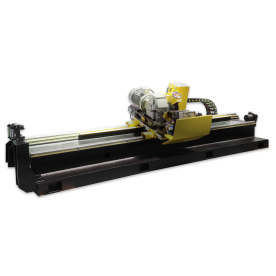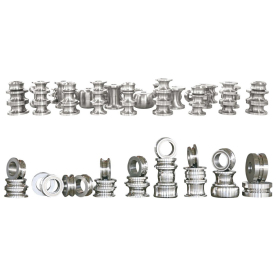[Tube making machine for industrial applications]The Versatility and Efficiency of Tube Making Machines for Industrial Applications: An In-Depth Exploration
News 2024-10-2
****In today's rapidly evolving industrial landscape, the demand for precision-engineered products has surged. One of the critical machinery types that have risen to prominence in this context is the tube-making machine. These machines are at the forefront of producing high-quality tubes used in various applications, ranging from construction and automotive to aerospace and healthcare. This article delves into the functionalities, benefits, and advancements of tube-making machines in industrial applications, illustrating their pivotal role in modern manufacturing.
Understanding Tube Making Machines
Tube making machines are specialized equipment designed to produce tubular products from raw materials such as metal sheets, plastics, or composites. They employ sophisticated techniques like welding, bending, and cutting to fabricate tubes that meet specific dimensional and material specifications. The machines can vary significantly based on their design, production capacity, and the materials they process.
Key Applications of Tube Making Machines
1. **Automotive Industry**: In the automotive sector, tube making machines are used to produce exhaust pipes, fuel lines, and structural components. The precision offered by these machines ensures that the products are lightweight yet durable, contributing to fuel efficiency and vehicle safety.
2. **Construction**: Steel tubes produced by tube-making machines are integral to construction. They are used in scaffolding, structural frameworks, and pipes for plumbing and heating systems. The strength and reliability of these tubes are crucial for ensuring the integrity of buildings and infrastructures.
3. **Aerospace**: Aerospace components often demand materials that can withstand high stress and extreme conditions. Tube making machines designed for the aerospace industry produce tubes that are not only lightweight but also resilient. These tubes are used in aircraft assemblies and engine components where performance and safety are paramount.
4. **Healthcare**: In the medical field, tube making machines are responsible for fabricating tubes used in various applications, including IV lines, catheters, and other medical devices. The precision and hygiene standards upheld during the production process are critical, given the sensitive nature of medical applications.
Advantages of Using Tube Making Machines

The Versatility and Efficiency of Tube Making Machines for Industrial Applications: An In-Depth Exploration
1. **Efficiency**: Tube making machines are designed for high-speed production. Their automated processes reduce manual labor, significantly increasing productivity and minimizing production costs. This efficiency is vital in meeting high-volume demands without compromising quality.
2. **Precision**: One of the standout features of modern tube making machines is their ability to produce tubes with exact specifications. This precision helps in minimizing waste and ensuring that products fit seamlessly into their designated applications.
3. **Material Versatility**: These machines can work with a variety of materials, including metals like steel and aluminum, as well as polymers and composites. This versatility allows manufacturers to cater to diverse industries and adapt to changing market demands.
4. **Customization**: Many tube making machines come equipped with programmable features, enabling manufacturers to produce customized tube designs and dimensions. This flexibility is essential in industries where specific applications may require unique solutions.
Technological Advancements
Recent technological advancements have significantly enhanced tube making machines. Innovations like CNC (Computer Numerical Control) technology allow for more intricate designs and higher levels of automation. Such advancements lead to better quality control, reduced downtime, and less risk of human error.
Additionally, the integration of IoT (Internet of Things) technology into manufacturing enables real-time monitoring of production processes. This capability allows manufacturers to pinpoint inefficiencies and maintain optimal operational performance, which is critical in competitive industrial environments.

The Versatility and Efficiency of Tube Making Machines for Industrial Applications: An In-Depth Exploration

